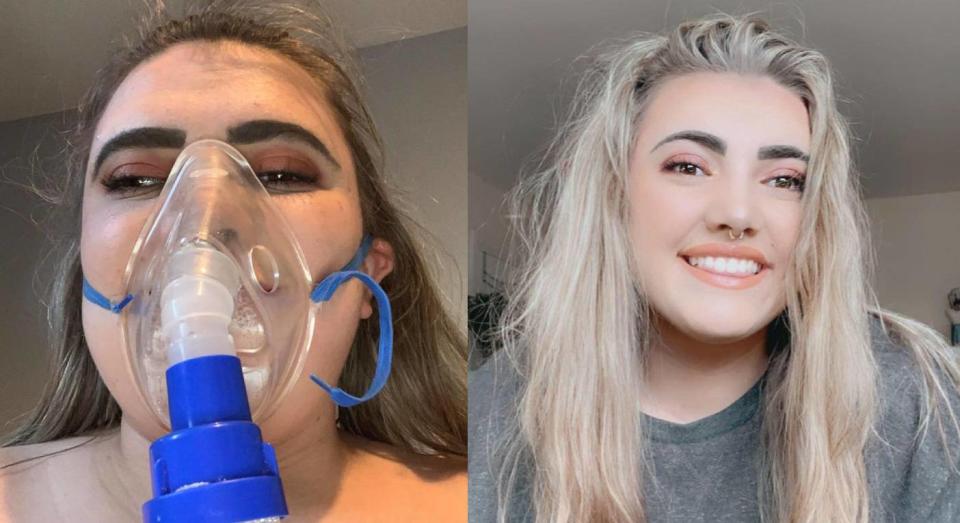Woman, 22, lives in constant fear that extreme asthma will kill her
22-year-old Tabatha Ketteringham lives in constant fear of dying because of an extreme form of asthma that can leave her bedridden after even the mildest form of exertion.
The drama student likens the feeling of breathing to being “underwater” with an “elephant sitting on her chest”.
Ketteringham is affected differently each day, with some days leaving her unable to do something as simple as put her shoes on.
The Bristol University student from Wells, Somerset, worries that her dreams of becoming a special needs drama therapist will be difficult because of her incurable lung condition.

At just 17, Ketteringham was diagnosed with brittle asthma – now more commonly referred to as severe asthma.
People with severe asthma make up 4% of asthma suffers, according to Asthma UK.
Read more: Asthma deaths at an 18-year high

“Some days, I’m not able to even put my shoes on, walk up the stairs, or have a shower, because it leaves me completely out of breath,” Ketteringham says.
“I can be fine one minute and then deteriorate very quickly, to the point where I can’t breathe and have to go A&E, where I’ll be hospitalised for a couple of weeks because I’ve picked up a chest infection.
“There are some days when I can’t get out of bed. Those days it can be like there is an elephant sitting on my chest and like I’m trying to breathe underwater. It’s really hard to get through it, but I have learned my limits.”
She started suffering from breathing difficulties at 13 when a bout of pneumonia meant she was reliant on an asthma pump, but it got progressively worse.

“I kept getting recurring chest infections and had to stop doing all the activities I loved like dancing, gymnastics, horse riding and drama classes,” she says.
“I would struggle to breathe and become very breathless all of a sudden.
“At the age of 15, I was diagnosed with asthma and was given different inhalers and medication, but I didn’t respond very well.
“I started to have quite a few hospital admissions. Often I would be taken there in an ambulance, because I couldn’t breathe and my immune system was so low that I’d get chest infections. It was clear the medication wasn’t working for me.”
Read more: Smoking near pregnant woman increases unborn baby’s asthma risk
She had to deal with the realities of her condition at a young age, which Ketteringham found difficult: “The realisation that I could actually die if I had a serious asthma attack was terrifying.”
She credits her supportive family and friends as well as boyfriend Josh Parker, 22, for helping lift her spirits.
She has learned to cope with her condition, which includes taking steroids every day and antibiotics three times per week. She also uses a nebuliser up to four times a day – a machine that changes liquid medicine into a fine mist that can be breathed in through a face mask or mouthpiece.
“I try to get up every day and put my make up on,” she said.
“I work part-time in a restaurant where I have a special plan so I can work behind the bar or on the glass washer so it is not too strenuous for me. My manager is very accommodating with my shifts. If I go to work I feel like a normal person, but it does wipe me out.”
Read more: Why are asthma deaths so high for young people in the UK?
According to PSNC, 5.4 million people are currently receiving treatment for asthma in the UK, ranging from mild to more severe cases. It can present itself in a range of different ways, with some people only feeling the impact during exercise and others unable to live their normal lives day-to-day.
Asthma UK recommend taking the following steps if you think you’re having an asthma attack:
Sit up straight
Take one puff of your reliever every 30 to 60 seconds up to 10 times
Call 999 if you don’t feel better
Repeat step two every 15 minutes while waiting
Ketteringham’s mum has now launched a GoFundMe page in a bid to raise £3,000 towards an adjustable bed and special fan for the 22-year-old, who already has to use a mobility scooter to get around.



